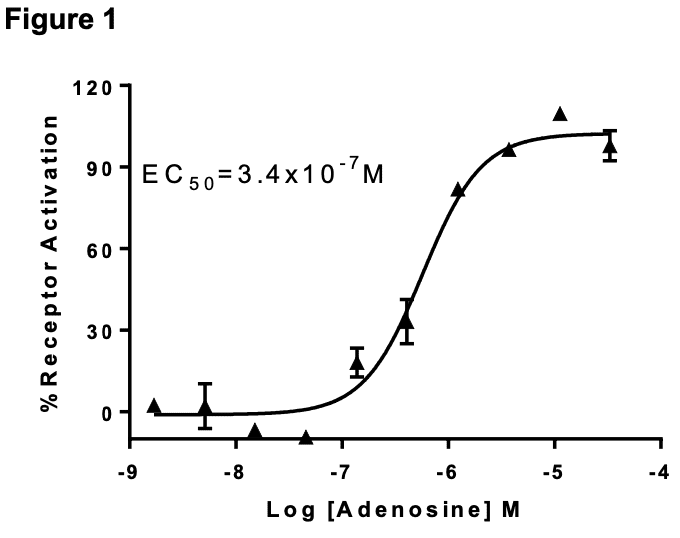Product Information
Catalog Number:
DCm1428B
Lot Number:
DCm1428B-111617
Quantity:
1 vial (4 x 106) frozen cells
Freeze Medium:
Cellbanker 2
Host cell:
HEK293T
Transfection:
Full-length Mouse ADORA2A cDNA (GenBank Accession Number NM_009630.3) with FLAG-tag sequence at the N-terminus
Recommended Storage:
Liquid nitrogen upon receiving
Propagation Medium: DMEM, 10% FBS
Stability:
Stable 1-2 days after thawing
Data Sheet
Background: Adenosine regulates the function of the innate and adaptive immune systems through targeting virtually every cell type that is involved in orchestrating an immune/inflammatory response. Of the four adenosine receptors (A1, A2A, A2B, A3), A2A receptor is the primary anti-inflammatory effectors of extracellular adenosine. A2A receptor predominant expresses in monocytes/macrophages, dendritic cells, mast cells, neutrophils, endothelial cells, eosinophils, epithelial cells, as well as lymphocytes, NK cells, and NKT cells. Its activation inhibits early and late events occurring during an immune response. A2A receptor also participates in tissue remodeling and reparation. A2A receptor has been shown to impact the course of a wide spectrum of ischemic, autoimmune, infectious, and allergic diseases, and has regulatory roles in immune/inflammatory diseases of various organs, including heart, lung, gut, liver, kidney, joints, and brain. Recently, A2A receptor has become a particularly attractive target to manage psychiatric disorders.
Application: Functional assays

Figure 1. Dose-dependent stimulation of calcium flux upon treatment with ligand, monitored with FLIPR and measured with MultiscreenTM Calcium No Wash Assay Kit (Multispan MSCA01.
References:
Haskó and Pacher (2008) A2A receptors in inflammation and injury: lessons learned from transgenic animals. J Leukoc Biol 83:447-455.
Cunha et al. (2008) Potential therapeutic interest of adenosine A2A receptors in psychiatric disorders. Curr Pharm Des 14:1512-1524.
